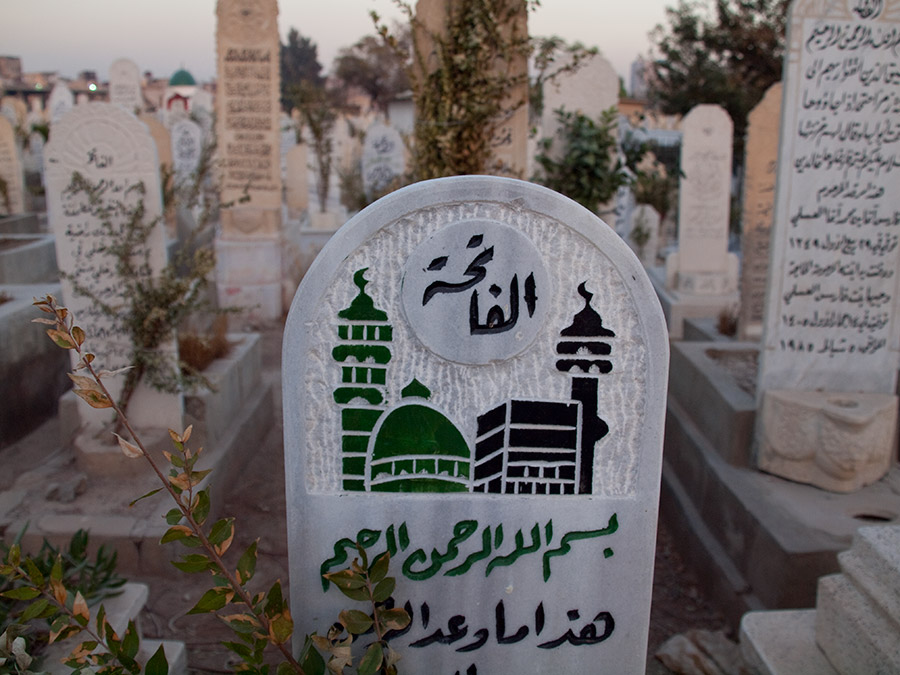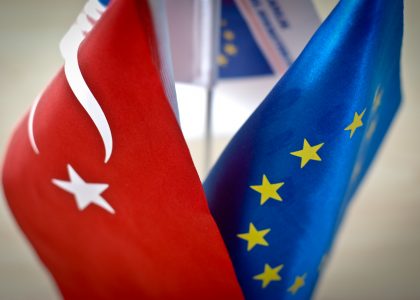Lee Jarvis reflects on his ongoing research project on terrorist obituaries.
Terrorists – or, better, those who are widely portrayed as ‘terrorist’ – are remembered in a multiplicity of ways after their death. In murals and in music, in slogans and speeches, on t-shirts and online, in fiction and in film. All of these ‘memory works’ recreate the past for some purpose, including, variously, to describe, explain, obituarise, demonise, glorify, or mourn their protagonists’ life, death, and violences.
These mnemonic practices are important – socially, politically, culturally, and perhaps economically – for at least four reasons.
Memory matters
First, they help frame the meaning of violent acts and violent actors. Consider the difference, for instance, between rebel songs which celebrate heroic martyrs, on the one hand. And, on the other, media coverage of female suicide bombers which tends to feminise its subjects via emphasis on their private lives, familial relations, and physical appearance.
Second, memories of dead ‘terrorists’ help to establish collective identities, including by positing moral distance between self and other. Descriptions of bin Laden cowering behind women at the moment of his killing, for instance, contrasted perfectly with celebrations of his courageous, masculine, killers standing as metonyms for the United States.
Third, they present an important site for (re)producing and contesting broader socio-political dynamics. The glut of cartoons mocking suicide bombers’ expectations of heavenly virgins, for instance, vividly demonstrate and perpetuate orientalist and Islamophobic discourse.
And, fourth, people seem to care, in that there is genuine public and political investment within diverse attempts to remember different ‘terrorists’. Repeated dispute around memorials commemorating IRA and UVF members in Belfast, for instance, provides but one continuing example of the importance of ethical as well as political questions around how – and, indeed, whether – ‘we’ should remember ‘terrorists’.
From present to past; from us to them
As a first step in a larger project exploring these constructions of dead evil and their significance, I have begun researching published ‘terrorist’ obituaries within recognized news media in the UK and beyond. Exploring these obituaries will, I hope, expand an existing sociological literature on the obituary and its place in collective memory. It will also help to build on and perhaps bridge two recent conversations within ‘critical’ terrorism research.
The first of these conversations focuses on how the threat of terrorism is socially constructed in political or media discourse and beyond. This literature has mushroomed in recent years, but its focus on articulations of present and/or future threat has not been matched by exploration of the importance and specificity of memories of dangers which are now past.
The second is a body of work on the commemoration of terrorism’s victims in diverse memory practices, from official ceremonies through to vernacular projects such as memorial websites. Where much of this – also largely interdisciplinary – literature focuses on performances of innocence, grief and trauma, less research has, again, been done on the work done by memory around figures of abjection where such articulations are often denied or heavily policed.
Research challenges
Although obituaries offer an interesting place from which to start such an analysis, they present methodological challenges worth mentioning. First, the pool of candidates sufficiently well known to merit their own obituaries in national media is relatively small. Although many of us will be familiar with several so-called ‘terrorist’ groups, there simply aren’t that many individual ‘terrorists’ out there whose lives have been (seen to be) dramatic or significant enough for obituarisation. Second, many of the world’s most (in)famous ‘terrorists’ are – bluntly – still alive! The Unabomber, Ted Kaczynski; Shining Path’s Abimael Guzman; Abdullah Ocalan of the PKK; Aum Shinrikyo’s Shoko Asahara, Khalid Sheikh Mohammed; Ayman Al-Zawahiri and many others would seem likely candidates for obituarisation at some future point, but not yet!
Third many of the most prominent individuals who have been deemed or explicitly labelled ‘terrorist’ by their opponents or others became famous for other activities, whether Nelson Mandela, Yasser Arafat or Menachem Begin. Such individuals fit uneasily with my focus on the remembrance of seemingly abject individuals, given they are remembered not (only, or even primarily) as ‘terrorist’. Similar reasons have led me not to investigate any of the more obvious ‘state terrorism’ candidates, who are more frequently remembered and at times commemorated as heads of state or similar; whether Stalin, Pol Pot, the Taliban’s Mullah Omar, or others. Finally, and potentially surprising, the obituarisation of those we condemn seems to be a relatively contemporary phenomenon, such that historical figures who retain contemporary name recognition such as Ulrike Meinhof don’t seem to have been widely obituarised at their death. This, of course, limits the historical reach of this stage of my research – and speaks to the growing prominence of ‘terrorism’ from the mid-late twentieth century onwards – but it also poses interesting questions about transformations in social memory in this context, and perhaps also beyond.
So, I return now to analysis of the obituarisation of George Habash as, ‘one of the most important Palestinian militant leaders’ (BBC), or ‘Terrorism’s Christian Godfather’; and of the ‘Terrorist leader‘ (The Independent) and ‘The Most Wanted Face of Terrorism’ (New York Times): Osama bin Laden. I’ll return to update this when I have more to report!
Lee Jarvis is Professor of International Politics at the University of East Anglia
Photo credit: Evgeni Zotov





